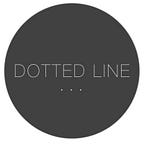Revolutions — from fear to opportunity
We live in uncertain times. Technology is on an accelerated curve of diversification. And with the internet we have a frictionless distribution system for commerce and information, where the transaction costs are set to zero. Therefore for the first time in history, the impact of this rapid explosion of options is felt on a global scale.
Gone are the times, where we exactly knew what we would be doing during our lifetime. Gone are the times of job security. Gone are the times of leading lives in a pre-set, pre-carved out path. It is becoming harder and harder to pick an education, career path or even life-style.
Looking at history, this isn’t the first time we have had to adopt. There have been many technological advances that shook our very existence, and changed our jobs, life and outlook of the world. However, because of geographical constraints and an inert system of spreading ideas, the effects were slower, localised and thereby we had more time to adjust.
400 years of Revolutions
400 years ago we invented the Scientific Method. Its Systematic Inquiry gave us the mindset of experimentation — to learn how the world works, seeking first to understand and then to control.
For the first time, we realised that progress isn’t natural, but will only happen once we put reason and skills to action.
With the motto “Nullius in verba” — (Latin for “on the word of no one”), the Royal Society of London in 1660 shedded ancestral handed-down wisdom, replacing it with evidence-based knowledge.
In little over 400 years, we went from the first look through a telescope to footsteps on the moon with many a revolution in between: the Agricultural Revolution (mid 1700s), Market Revolution (early 1800s), First Industrial Revolution (late 1800s), Second Industrial Revolution (1900s), Green Revolution (1940s), Space Revolution (1950s), PC Revolution (1970s), Information Revolution (1980s), Consumer Revolution (2000s), Internet Revolution (2010s).
2020s Artificial Intelligence Revolution
And it is not like we are anywhere close to stopping. Up next is the upcoming age of robots, chatbots, voice interfaces and self-driving cars; where computers have the ability to program themselves and take decisions.
The 2016 World Economic Forum report on the “Future of Jobs” contains following predictions -
The world’s workforce is set to lose some 7.1 million jobs between 2015 and 2020, in large part due to automation.
Furthermore, some 65 percent of children in primary school today will ultimately hold jobs that don’t exist yet.
What makes this age different than the previous ones, is that all these changes are happening at shorter intervals. With the cost of distibution set to zero, inventions multiply at unprecedented rate around the globe. Where before we had time to adjust, today, we will certainly encounter more than one revolution in our lifetimes.
from fear to Inquiry
To keep up with the change and learn how to apply technological changes to our jobs and life, we must continuously learn new skills.
This month alone, nearly 1300 free online courses are starting on various MOOC platforms. With an offering for free-style jazz improvisation, Machine Learning in Python, the Korean alphabet, an Introduction to Negotiation and everything in between.
Despite that, picking up a new skill alone isn’t enough. Changes in technology also cause the underlying model of our current institutions and businesses to change. Therefore, in addition to newly learned skills, old habits and practices need to be examined and unlearned.
That is easier said than done. How do we decide what to unlearn and what to learn?
Here’s where again the mindset of Systematic Inquiry comes in. This is a mindset of disciplined reflection, analysis and synthesis. One that’s based on experimentation to understand how the world has changed and then to control.
The skills that aid Systematic Inquiry are Critical Thinking, Meta-Cognition and Thinking Slow.
Our brain is by far the most versatile and creative tool. Understanding that what we perceive as reality, is a construction of deceptions, emotions and biases sharpens our thinking. Because thinking — just as speaking, reading and writing — is a learned skill that can be improved.
When we combine Systematic Inquiry with Design, we get good thinking. This makes a powerful toolkit to suspend reality just long enough to reflect upon it and pave the path forward to adapt.
It is interesting to see that the same mindset of systematic inquiry that brought us the technological progress, is also the one that is going to help us deal with the uncertainty that comes with it. Just think about that, slowly!
References
John Oliver from Last Week Tonight created an episode named “Automation”, sketching the technological revolution and its effects. You can watch it at https://www.youtube.com/watch?v=_h1ooyyFkF0
